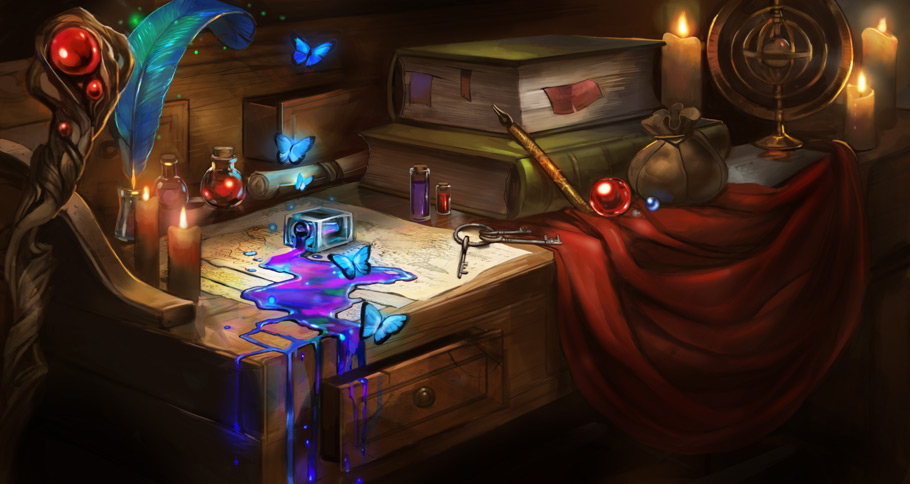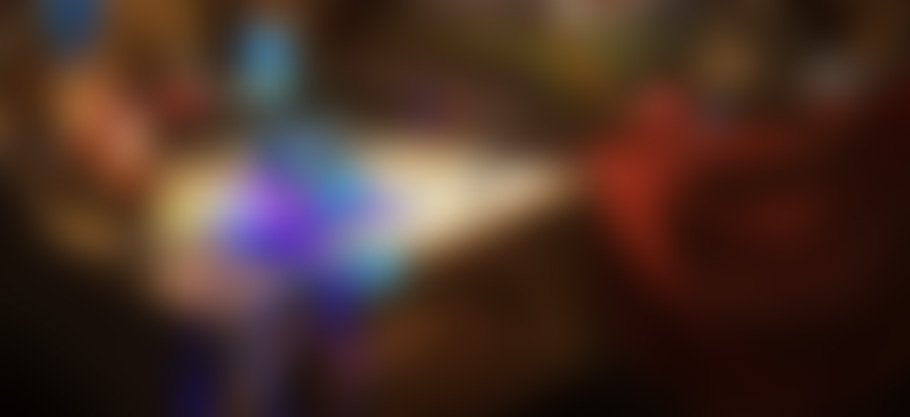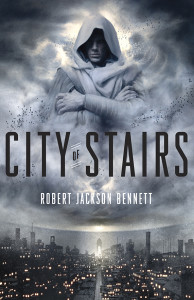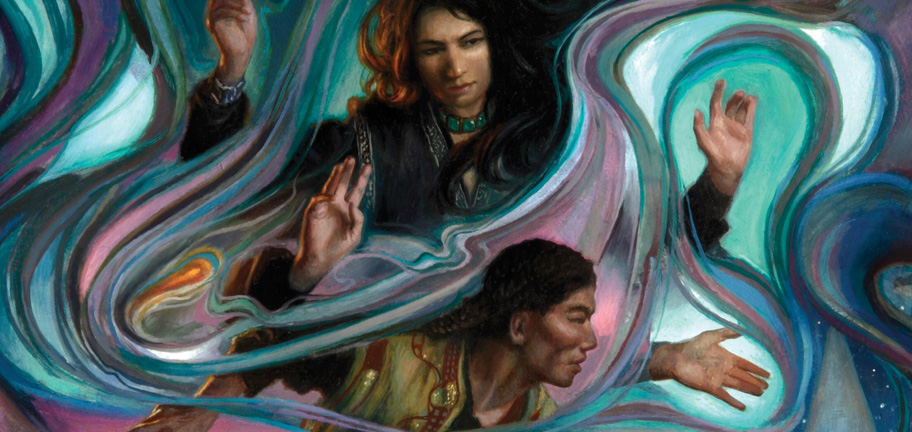2014 was a banner year for A Dribble of Ink. In addition to all of the fun artwork and news about SFF, A Dribble of Ink published some of its most popular and fascinating essays and reviews. So, to celebrate the best of what A Dribble of Ink published in 2014 (and as a subtle reminder of the site’s eligibility in the “Best Fanzine” category at this year’s Hugo Awards), I’ve gathered together a small collection of essays and reviews that make me particularly proud.
Whether you find something new, or revisit an old favourite, I hope you have fun reading through A Dribble of Ink’s contribution to 2014. Read More »
So, it’s that time again. 2014 is in the rear-view mirror and we’re all puking nostalgia for the year gone by. Below is a list of some of my very favourite things from 2014.
This is very intentionally not a Hugo ballot (because who likes being strapped down by those rules if they don’t have to be), as I wanted some freedom to group things as I feel they should be grouped, and because I want to be able to celebrate stuff that I enjoyed immensely, but isn’t quite right for the Hugo Ballot (*coughFantasyLifecough*). My Hugo nominations will come later, but this should give you a hint of what’s to come.)
So, without further adieu, let’s jump into my favourite things of 2014!
My Favourite Novel
City of Stairs by Robert Jackson Bennett
Who would have thought that Robert Jackson Bennett, author of quirky horror/urban fantasy mash-up novels, would write the best secondary world fantasy of the year? City of Stairs is an absolute delight from beginning to end. It’s a chain-smoking, edge-of-your-seat, snarl of a novel with a wonderfully grizzled cast. The broken city of Bulikov, decimated when its gods were killed, is one of the most tragic and fascinating examples of “setting as character,” and its an absolute joy to explore its mysteries as Shara and Sigurd (an odd couple that you can’t help but love) unravel its mysteries. To top it off, Bennett wraps things up with a conclusion so satisfying and epic that you can’t hardly believe the novel’s only 450 pages. Other authors only manage to fit half so much into novels twice as long.
Even as I was startled by its twisted depth, I adored every moment I spent with City of Stairs. Colonialism lies at the centre novel’s centre, and RJB handles it with equal parts boldness and delicacy. The ruined beauty of Bulikov and its fallen gods haunted me long after I turned the final page. Read More »
Note: This article was originally published as part of Smugglivus, a year-end celebration of all things books over at The Book Smugglers. Check out the rest of the fun!
To begin the year, I set myself a challenge: read a perfect split balance of male:female authors in 2013. It was a personal challenge, and I asked no one else to follow along with me. This challenge had two purposes. The first was to provide more exposure for female fantasy and science fiction writers. The second was to expand my own tastes, to discover new authors. As 2013 winds down, I consider this challenge a success, but it wasn’t without some controversy.
In particular, the comments thread generated some salty discussion about my challenge and the idea of ‘quotas’ playing against the natural interests of a reader/critic. I read a lot of the same arguments, mostly about being ‘genderblind’, that I had once made. These arguments are so easy to fall back on, a safety net to avoid falling into blame. At first, I was quick to respond the same way, “I just read what I want to read, and ignore the gender of the author completely.” Well and true, maybe, but I started to recognize that, despite these excuses, there was a large bias (about one to three, female to male) in my reading habits. I began to ask myself why. I still don’t have an answer, but I did recognize that a conscious course correction was something I could be proactive about without needing an answer right away. Read More »
So, the Hugo awards have come and gone for 2013. People have blogged widely about it, and all that need saying has already been said (see here for my thoughts on this year’s ‘Best Novel’ winner, Redshirts by John Scalzi, for instance). So, instead of recapping the conversation (which, to be frank, I’m a little behind the curveball in catching up on), I thought it would be more interesting to look ahead at next year’s awards, and start the conversation a little early. This way, I can hopefully convince you to check out some of the year’s best works while there’s still time to enjoy and nominate it.
I’ll work through several of the categories, those which I have any sort of opinion of, and discuss the works that I think are most impactful and important, and will, as of right now, appear on my ballot (until they’re replaced by something even more awesome between now and the time nominations are due.) And then, in the ‘Also/maybe/are these good?’ sections, I’ll list off a few choices that I haven’t read/experienced yet, but feel that they deserve to be in the conversation and will likely be considered when I do get around to them.
I’d also encourage you to join me in the comments. Tell me why I’m wrong. Tell me what you’ve read this year that resonated with you. Because, what’s the point of award season if not to encourage people to discover great new books, films, and every other story of art? Read More »
I came across this on Tumblr, and thought it was worth a read:
Science fiction, speculative fiction, whatever, is the perfect choice for that kind of behavior. Someone […] once wrote that poking fun at science fiction, as a genre, is so silly, considering that mystery novels (which are also great!) are about death and murder and crime, while sci-fi is about reimagining the world and making it better and new and different. And, honestly, these are the books and pulps and magazines and comics that have done more than any other genre to begin the process of playing with race, and gender. No one is claiming that Heinlein is a social justice blogger, or anything like that, and it’s not a super-great book, but ANY KIND of science fiction, even of the Tits in Tight Silver Outfits variety, is implicitly saying that the world we currently live in is not the only way a world could be, that things could change. That’s really revolutionary, when you think about it. And, jeez, if you want to talk about “the story not the storyteller,” let’s think about Orson Scott Card. The man is a bag of dicks, when it comes to his personal politics, but Ender’s Game, Speaker for the Dead, and Pastwatch: The Redemption of Christopher Columbus could actually make you a better person.
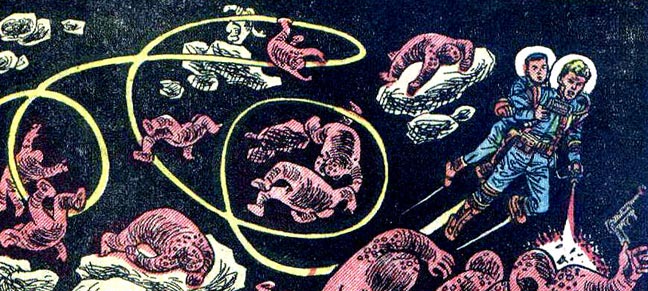
This is an excerpted piece of from Nicole Cliffe‘s review of Robert Heinlein’s Stranger in a Strange Land, I’ve always appreciated this aspect of Science Fiction and, like Cliffe, feel that the sensawunda, the insistance that the world, the universe, humanity has the potential to be better is a very strong reason why Science Fiction is so important to the history of human society and the future development of us as a people and a species. I’ve written something similar about Fantasy, come to think of it. Whether you agree with Cliffe or not, the whole review is worth reading, and I hope we can discuss some of these arguments that she raises.
Thoughts?
